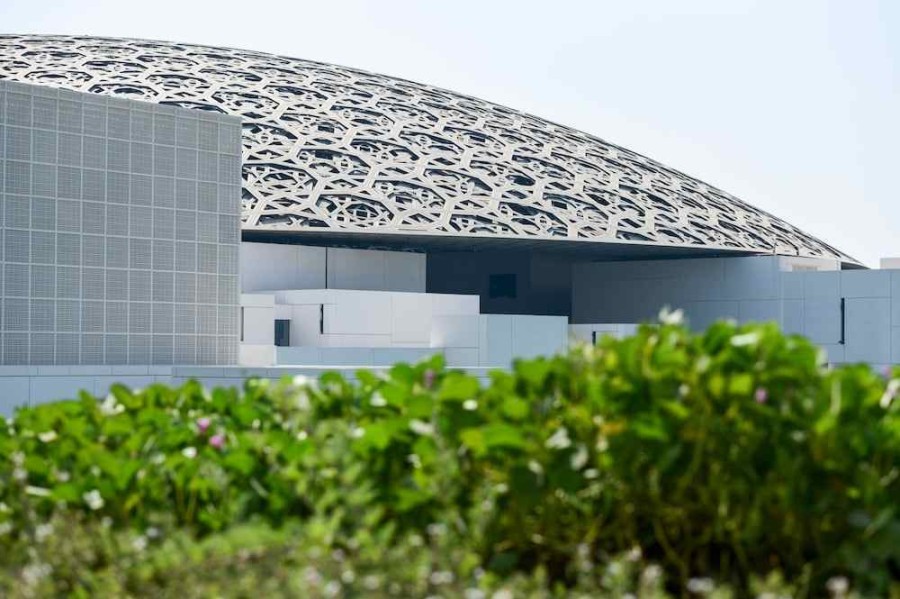Abu Dhabi’s non-oil foreign trade jumped 8% in 2023 amid strong economic expansion

Abu Dhabi’s non-oil foreign trade jumped 8 percent annually to more than Dh281.9 billion ($76.75 billion) in 2023 as the emirate’s economy continues to expand amid diversification efforts and government drives.
Imports during the one-year period grew by 19 per cent to more than Dh136.4 billion, while re-exports rose 11 per cent annually to nearly Dh52.4 billion, Abu Dhabi Media Office said on Friday citing Abu Dhabi Customs' statistics.
The value of trade in base metal and associated products rose 11 per cent to Dh53.1 billion, while trade in machinery, sound and image recording, and playback equipment registered a growth rate of 16 per cent to Dh44.7 billion.
Trade in transport equipment as well as pearls, precious stones and precious metals also grew during the period boosting overall commerce in the emirate. “The growth rates reflect
“This is driven from policies, decisions and strategic initiatives adopted by the UAE government to create a business environment open to the global economies, thereby enhancing the country's competitiveness.”
Abu Dhabi’s economy grew 3.1 per cent annually last year, hitting its highest level in a decade, as a sharp expansion of the non-oil sector drove momentum amid a continuing push for diversification.
The emirate's GDP for the 12 months to the end of December reached Dh1.14 trillion, its best performance in terms of value in 10 years despite challenges and global market fluctuations that affected all sectors, an Abu Dhabi Media Office statement said this month.
This has come as the emirate continued its shift away from oil, with several measures to attract international investors, boost competitiveness and improve the ease of conducting business.
In 2022, the emirate launched an industrial strategy to boost the contribution of the sector to the economy, by investing Dh10 billion across six programmes to more than double the emirate’s manufacturing to Dh172 billion by 2031.
Abu Dhabi is also investing heavily in tourism to boost its contribution to the emirate’s overall GDP by 2030.
The emirate is planning to invest more than $10 billion in infrastructure as part of its new major tourism strategy, the chairman of the emirate's Department of Culture and Tourism said this month.
The emirate also aims to boost its number of hotel rooms to 52,000, from the current 34,000, to support the Abu Dhabi Tourism Strategy 2030, Mohamed Al Mubarak told The National.
The latest data from Abu Dhabi Customs found non-oil foreign trade through the emirate’s land ports and seaports grew by 14 per cent to Dh112.9 billion, and by 13 per cent to reach Dh103.6 billion, respectively.
The volume of foreign trade through the airports of Abu Dhabi reached Dh65.3 billion.
“Abu Dhabi witnessed significant growth in several key economic activities during 2023, which was directly reflected in the growth of foreign trade through the emirates,” said Abdulla Al Qemzi, acting director general of Statistics Centre Abu Dhabi.
The UAE is also signing new trade agreements that are helping the country to boost trade with different countries across the globe. It has so far signed 11 Comprehensive Economic Partnership Agreements with several countries including India, Indonesia, Israel and Turkey.
Previous Story
- Abu Dhabi's non-oil economy grew 8.6% in first...
- Global economy will continue to slow in 2024,...
- Masdar explores production of low-carbon polypropylene with Japanese...
- Luxury brand Mondrian to open first UAE hotel...
- Abu Dhabi's Ewec aims to boost solar power...
- Sharjah’s Arada raises $50m through second tap of...
- Abu Dhabi's FAB not considering StanChart bid that...
- Ta’ziz to develop low-carbon ammonia plant in Ruwais